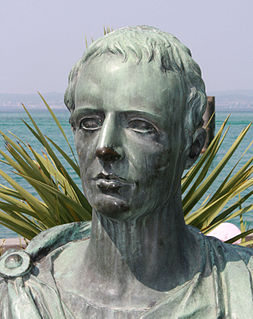A Quote by Marcus Tullius Cicero
Sed nescio quo modo nihil tam absurde dici potest quod non dicatur ab aliquo philosphorum. (There is nothing so absurd but some philosopher has said it.)
Related Quotes
If the test of truth lay in a show of hands or a counting of heads, the system of magic might appeal, with far more reason than the Catholic Church, to the proud motto, 'Quod semper, quod ubique, quod ab omnibus' [always, everywhere, and by all], as the sure and certain credential of its own infallibility.
For many ages it has been allowed by sensible men, Nihil est in intellectu quod non fuit prius in sensu: That is, There is nothing in the understanding which was not first perceived by some of the senses. All the knowledge which we naturally have is originally derived from our senses. And therefore those who want any sense cannot have the least knowledge or idea of the objects of that sense; as they that never had sight have not the least knowledge or conception of light or colours.





































